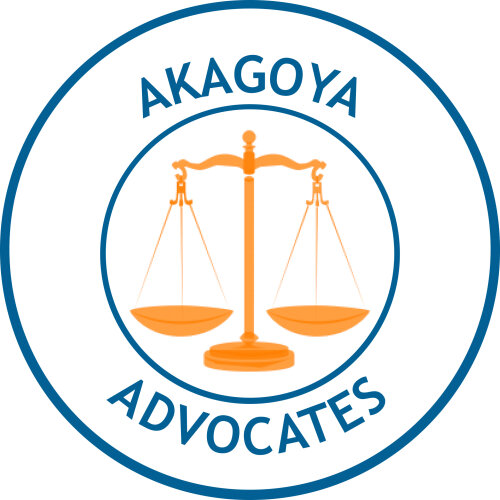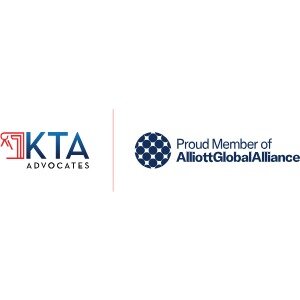Best Administrative Lawyers in Uganda
Share your needs with us, get contacted by law firms.
Free. Takes 2 min.
Or refine your search by selecting a city:
List of the best lawyers in Uganda
About Administrative Law in Uganda
Administrative law in Uganda encompasses the legal principles governing the administration and regulation of government agencies. This area of law ensures that these bodies adhere to laws and regulations in decision-making processes. Administrative law covers a broad area, including human rights, public administration, and regulatory activities. It aims to foster fair governance, transparency, accountability, and justice in administrative actions and decisions.
Why You May Need a Lawyer
There are several situations where individuals or organizations may require legal help in the field of administrative law in Uganda:
- Appeals and Reviews: If you feel a decision made by a government agency or regulatory body is unfair, an administrative lawyer can help you challenge or appeal the decision.
- Compliance Issues: Understanding and adhering to the vast array of regulations and laws can be complex. Lawyers can help ensure your actions align with these requirements to prevent penalties.
- Licenses and Permits: Whether you’re starting a business or need a specific permit, legal help can facilitate the process and ensure you meet every legal requirement.
- Regulatory Investigations: If a government agency is investigating you or your business, legal guidance can protect your rights and interests.
- Public Procurement: For those involved in government contracts, understanding the legal intricacies can prevent disputes and legal complications.
Local Laws Overview
Uganda's administrative law is rooted in the Constitution, which mandates government agencies operate within the scope of the law. Key aspects include:
- The Constitution: As the supreme law, it sets administrative law's foundation, emphasizing human rights, accountability, and transparency.
- The Administrative Procedures Act: This act governs the procedural fairness in decision-making by public authorities.
- The Public Procurement and Disposal of Public Assets Act: This is crucial for maintaining fairness in public procurement processes.
- The Access to Information Act: This act guarantees the public’s right to access government information, fostering transparency.
- Judicial review: Courts can review and potentially overturn decisions made by administrative bodies if they exceed their legal powers, act in bad faith, or disregard fair procedures.
Frequently Asked Questions
What is the role of administrative law?
Administrative law governs the activities of government agencies, ensuring they act within their legal bounds and maintain public accountability.
How can I challenge a government decision?
You can challenge a decision through an appeal process or seek a judicial review if you believe the decision was unlawful or unfair.
What is judicial review?
Judicial review is a legal challenge where courts assess the legality of government or administrative actions and can overturn decisions if found unlawful.
How do I obtain a business permit in Uganda?
To obtain a business permit, you must apply through the appropriate local authority, ensuring you meet all requirements and comply with relevant regulations.
What rights do I have in administrative proceedings?
You have the right to fair treatment, access to information, and to present your case in disputes involving administrative bodies.
Can I access government records?
Yes, the Access to Information Act allows public access to government-held information, subject to specific exemptions for privacy and security.
What if a government agency violates my rights?
You can seek recourse either through the agency's internal complaint mechanisms or through legal action with the help of an administrative lawyer.
What are the penalties for non-compliance with administrative laws?
Penalties can vary depending on the specific law or regulation violated and may include fines, revocation of licenses, or other sanctions.
How long does the appeal process take?
The duration of an appeal can vary depending on the complexity of the case, the regulatory body involved, and the legal avenues pursued.
Who interprets administrative laws?
Courts, tribunals, and, in some cases, administrative agencies themselves are tasked with interpreting administrative laws.
Additional Resources
Several resources and organizations can provide assistance or information regarding administrative law in Uganda:
- Law Development Centre: Offers legal training and resources for understanding Ugandan laws.
- Ministry of Justice and Constitutional Affairs: Provides information and legal support on state-related legal matters.
- Judiciary of Uganda: For information on court procedures related to administrative law.
- Public Procurement and Disposal of Public Assets Authority: Provides guidance on public procurement rules and procedures.
- Uganda Human Rights Commission: Offers assistance on human rights issues within administrative contexts.
Next Steps
If you need legal assistance in administrative matters, consider the following steps:
- Consult with an Administrative Lawyer: Seek out a lawyer specializing in administrative law to guide you through your specific legal issues.
- Prepare Documentation: Gather all relevant documents, correspondences, and decisions related to your case for a thorough legal assessment.
- Educate Yourself: Familiarize yourself with the relevant laws and procedures to better understand your situation and rights.
- Contact Relevant Authorities: Engage with the concerned government agency or regulatory body to discuss possible resolutions or clarifications.
- Consider Alternative Dispute Resolution: Explore mediation and arbitration as potential alternatives to litigation for resolving disputes efficiently.
Lawzana helps you find the best lawyers and law firms in Uganda through a curated and pre-screened list of qualified legal professionals. Our platform offers rankings and detailed profiles of attorneys and law firms, allowing you to compare based on practice areas, including Administrative, experience, and client feedback.
Each profile includes a description of the firm's areas of practice, client reviews, team members and partners, year of establishment, spoken languages, office locations, contact information, social media presence, and any published articles or resources. Most firms on our platform speak English and are experienced in both local and international legal matters.
Get a quote from top-rated law firms in Uganda — quickly, securely, and without unnecessary hassle.
Disclaimer:
The information provided on this page is for general informational purposes only and does not constitute legal advice. While we strive to ensure the accuracy and relevance of the content, legal information may change over time, and interpretations of the law can vary. You should always consult with a qualified legal professional for advice specific to your situation.
We disclaim all liability for actions taken or not taken based on the content of this page. If you believe any information is incorrect or outdated, please contact us, and we will review and update it where appropriate.
Browse administrative law firms by city in Uganda
Refine your search by selecting a city.

















